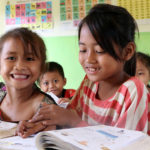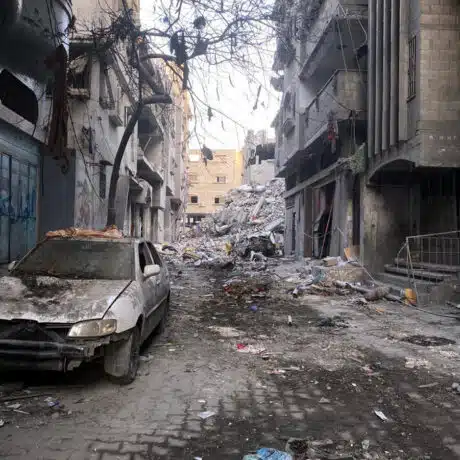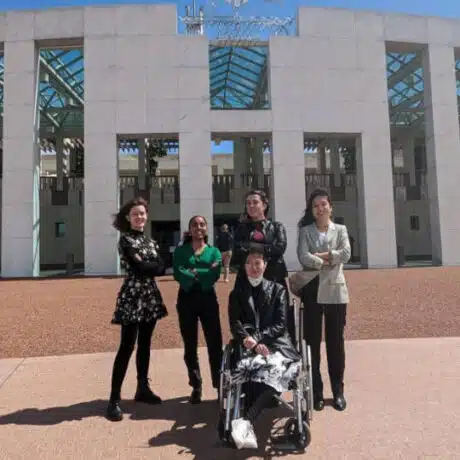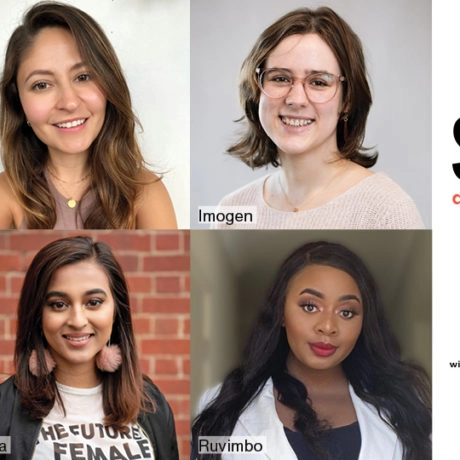News and Stories - Advocacy - 4 March 2021
Youth Activists on why educating girls can change the world
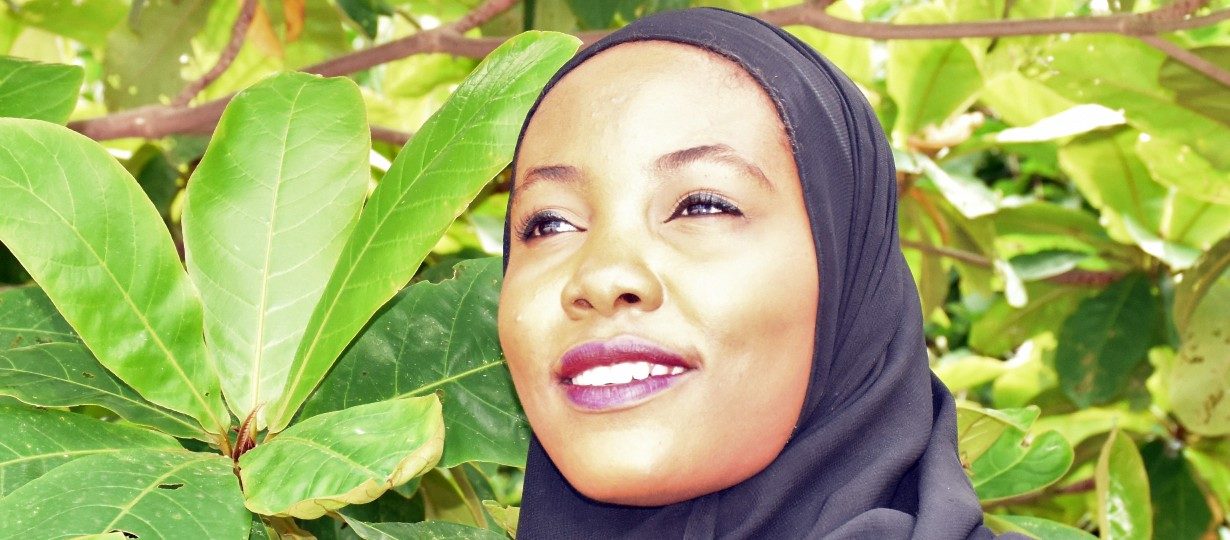
We’re proud to partner with Shona Joy, a woman-led Australian fashion label with a passion for girls’ equality, to bring you this special International Women’s Day blog.
Education is everything. When a girl is educated, not only is she given choices for her future and opportunities that can change her life – she can change the world. Yet all around the globe, there are more than 130 million girls who are currently denied their right to an education and the opportunity to reach their potential.
As the charity for girls’ equality, we are committed to making sure every girl has the opportunity to go to – and complete – school. Together with youth champions and partners, we advocate for girls’ and young women’s education at a grassroots level and supports girls to become leaders in their own communities, supporting families with food, scholarships and learning resources to help make sure all children can attend school.
Together with Shona Joy, we’re excited to share the stories of four inspiring Plan International Australia youth activists and why they believe educating girls has the power to change the world.
Pragya
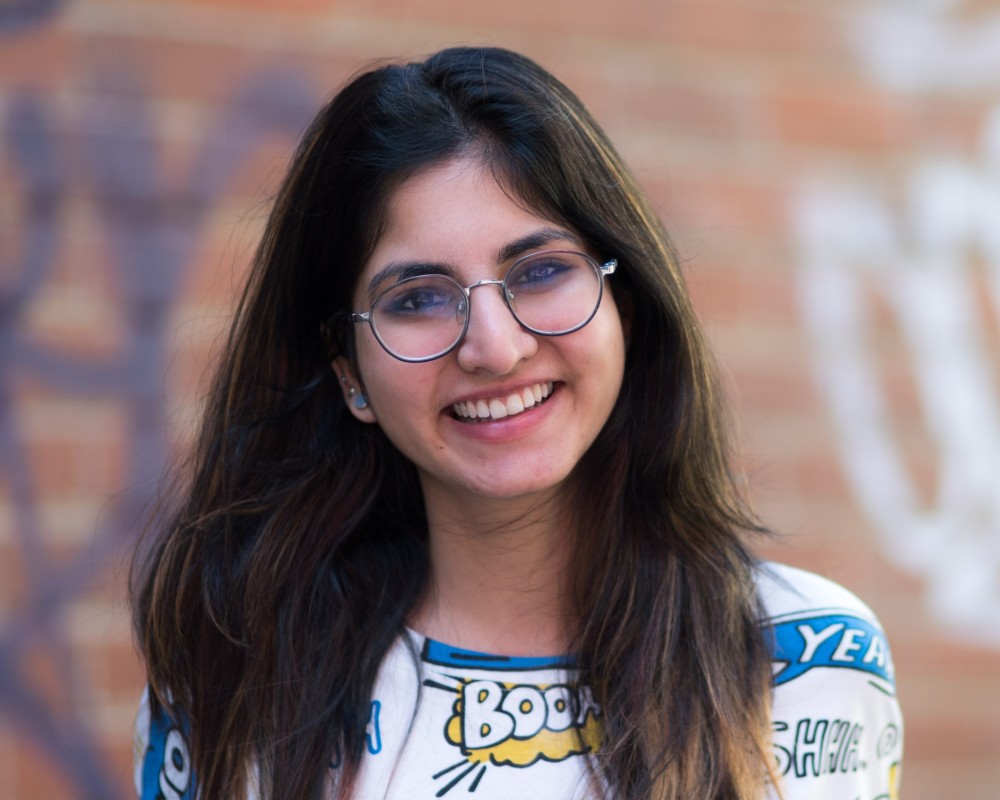
As an activist, what are you trying to do to make a difference?
As an activist and a young woman in the world of today, I have realised starting the conversation about gender inequality is the start to bringing real change. I grew up travelling and living all over India and saw that young women and girls need a platform to amplify their voices – they don’t need someone else to speak for them. Girls are a force to be reckoned with and girls that stand up for what they believe in are unstoppable.
How has your own story influenced your gender equality work?
I grew up as an only girl child and was lucky to have a set of parents that were extremely liberal and always pushed me to do my best. Though as I started travelling and living in different parts of India (and now the world) I very quickly realised that my situation was the exception and not the rule. This truly broke my heart and boiled my blood. I have seen classmates of mine drop out from school because their parents wanted to save that money for their dowry or just because they thought educating the son was enough. Statistics and stories have shown time and again how many challenges girls face even before making it to school and once they do a whole set of other challenges are thrown their way.
How has education made an impact on your own life?
I have been extremely lucky to have had the opportunity to get an education in over 14 schools because of my father’s job. For me education is not just about the curriculum taught at school, it is so much more than that. The experiences you live, the challenges you face and the choices you make are what shape us. Education truly taught me that the pen is mightier than the sword, it taught me how much difference raising your voice can make and most importantly, that education for all should be a birth right and not a privilege.
Why do you believe that educating girls can change their own lives, but can also transform the world?
I had read a quote somewhere that deeply resonated with me. “When you educate a man, you educate a man but when you educate a women, you educate a community.” This quote holds so true for any family or any community. Growing up, my memories are of sitting and studying while my mother supervised, helping me get the best grades. She shaped me into the woman I am today and that is because of the education she got as a young girl herself. A young girl has so much fire inside her to learn and grow, and all she needs are opportunities. There is a Greta and Malala in every little girl just waiting to get her microphone and her chance to speak and not back down. The world would be a kinder, more peaceful place with equality. It would be safer and more developed. Educating girls isn’t just beneficial to them but truly to all around them. We are a force to be reckoned with. We are unstoppable.
What are some of the biggest hurdles girls face in getting an education?
As sad and heartbreaking as it may sound, some communities around the world still consider the birth of a baby girl a curse and pray and wish for a baby boy. In these circumstances, spending money on her education is the last thing on their mind. For the few that do end up starting school, many drop out as soon as they get their periods or because of a lack of facilities like enough toilets. Another huge factor that impacts the education of girls – especially in rural areas – is the long distances girls have to walk which ends up being unsafe. These are just hurdles even before they start a proper education.
Aishatu
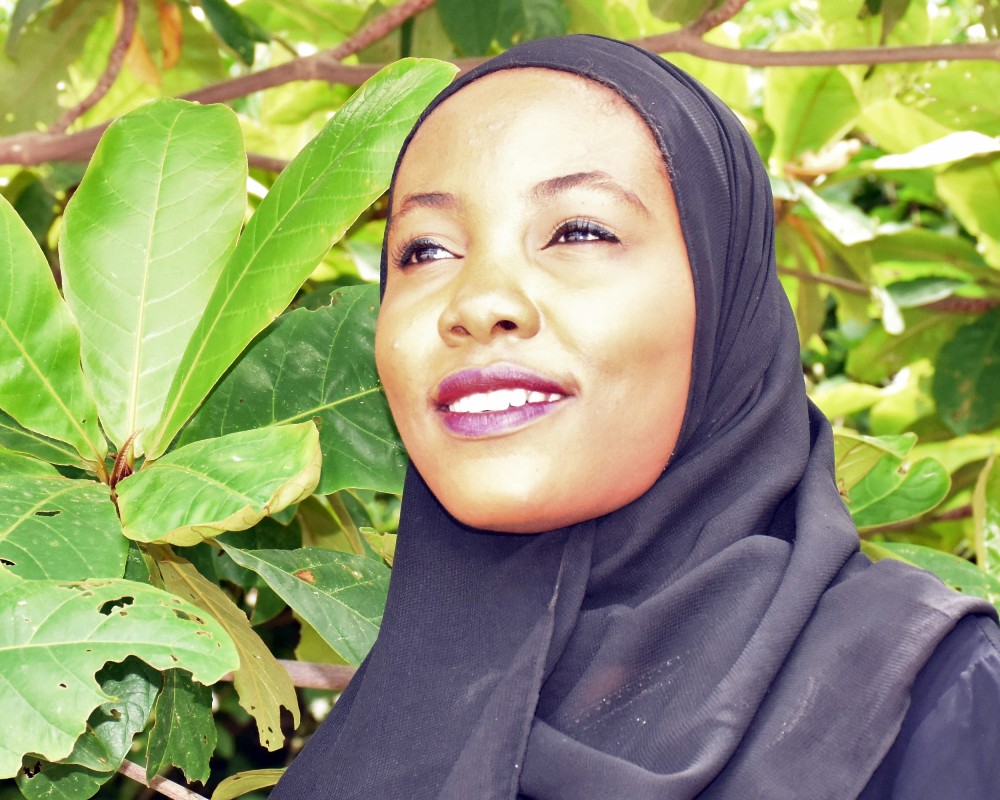
As an activist, what are you trying to do to make a difference?
I am the founder of a community-based, youth-led, and women-led NGO called Zenith of the Girlchild and Women Initiative Support (ZEGCAWIS). ZEGCAWIS strive for a just world, where women’s, girls’ and children’s rights are protected and supported, a world where everyone will have equal access to opportunities, economic empowerment and be treated with respect and dignity irrespective of their sex, gender, race, age, and religious differences.
How has your own story influenced your gender equality work?
My motivation to be an advocate is based on my experience as a survivor of gender-based violence and the north-east Nigeria humanitarian conflict which made me an internally displaced person. Also, growing up in a society where girls’ education and empowerment is undermined hugely influences my advocacy work. I now work as a consultant with Plan International, working on their girls get equal and anti-trafficking campaigns, and also campaign for gender equality on social media.
How has education made an impact on your own life?
I studied primary and secondary school, however the latter was disrupted due to the Boko Harem crisis in north-east Nigeria. I managed to complete my high school education in a different school in 2013, however I was denied a university education by my family and endured a forced and abusive marriage when I as 17 and was forced from my home by Boko Haram insurgents. We were later forced to flee from our homes and became internally displaced people. Eventually, I obtained a Diploma in Social Work and am now studying a BSC in Mass Communication at the University of Maiduguri. My dream is to one day become a journalist.
Why do you believe that educating girls can change their own lives, but can also transform the world?
Quality education is one of the best ways to address inequality and to empower girls. Working as a gender-based violence activist taught me that one of the best ways to protect women and girls against violence and abuse is education, economic empowerment, and financial independence – these three powerful things reduce a girls’ vulnerability to violence and abuse.
What are some of the biggest hurdles girls face in getting an education?
For girls around the world – especially in vulnerable communities – many obstacles and issues stand in the way to successful education: forced and child marriage, gender-based violence, poverty, period stigma, among others. One of the biggest barriers I faced growing up in a highly patriarchal society was being forced into a marriage as a minor, shattering my goals and dreams for the future. Despite that, I survived and thrived am now pursuing my dreams studying journalism. Menstrual hygiene was also a big challenge during my educational period as government facilities (washrooms) were not women and girl friendly: there were no gender friendly spaces around the school area for girls to change pads or clean up during menstruation, and there is a great deal of stigma and an expectation of being silent about menstruation.
Libby
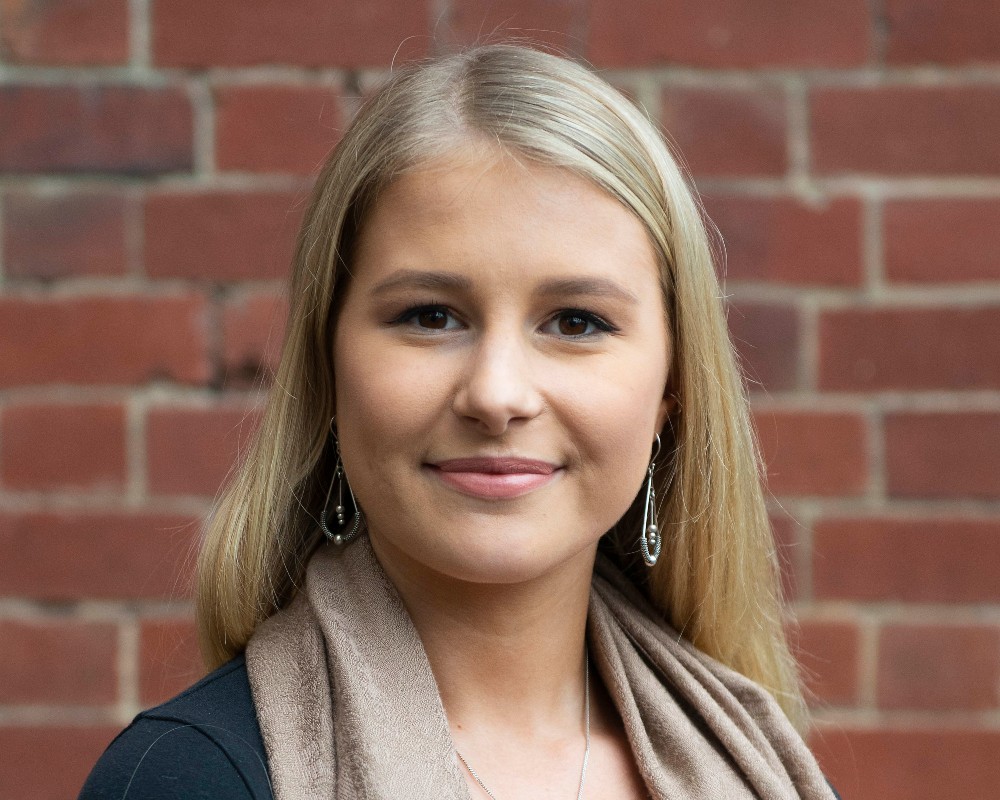
As an activist, what are you trying to do to make a difference?
I’m a youth activist with Plan International Australia and work with a fantastic team of young people to create social change around gender equality. Recently I co-authored a ‘A Better Normal: Girls Call for a Revolutionary Reset’ where we asked young women and girls in over 90 countries what they wanted to see in their future and mapped out pathways to get us there. The best part of this work is designing solutions for youth, with youth, and then presenting these to power holders, who are often really receptive to hearing younger voices.
How has your own story influenced your gender equality work?
I am particularly passionate about breaking down the taboo around menstruation and period poverty. In early high school I had an experience where I leaked through my pad and onto my school skirt so badly that I had to go home. I remember swearing my closest friends to secrecy, because I couldn’t bear the thought of public embarrassment. A couple years later I was reflecting on this moment, and the shame that I had felt, and decided to unpack why that was. From then on I have been able to channel this experience into a force for change in breaking down period stigma so that my children don’t have to experience that same discomfort.
How has education made an impact on your own life?
As a current university student education makes a huge impact on my life everyday. I am studying a Bachelors of Social Science with majors in Gender Studies and Anthropology and love what I’m doing. My gender studies major in particular has shaped the way I see myself and the world around me and has made me a better critical thinker and better activist.
Why do you believe that educating girls can change their own lives, but can also transform the world?
The well known quote: “When you educate a girl you educate a nation” sums it up pretty well. When you educate a girl, you educate entire generations and communities. Everyone deserves the right to education, and even if educating girls just changed their lives and not the whole world it would still be worth doing (it’s just a bonus that it does both).
What are some of the biggest hurdles girls face in getting an education?
Girls around the world face many barriers to education and these have only been exacerbated with the impacts of the pandemic. These include gender norms that keep girls in domestic roles, and the lack of facilities for menstrual health management, as well as the stigma around menstruation. Barriers also include gender-based violence, child and forced marriages, pregnancy, and poverty, which often leads to boys being prioritised for education over girls. These issues often feed into one another and must be addressed holistically in order to be eliminated.
Carla
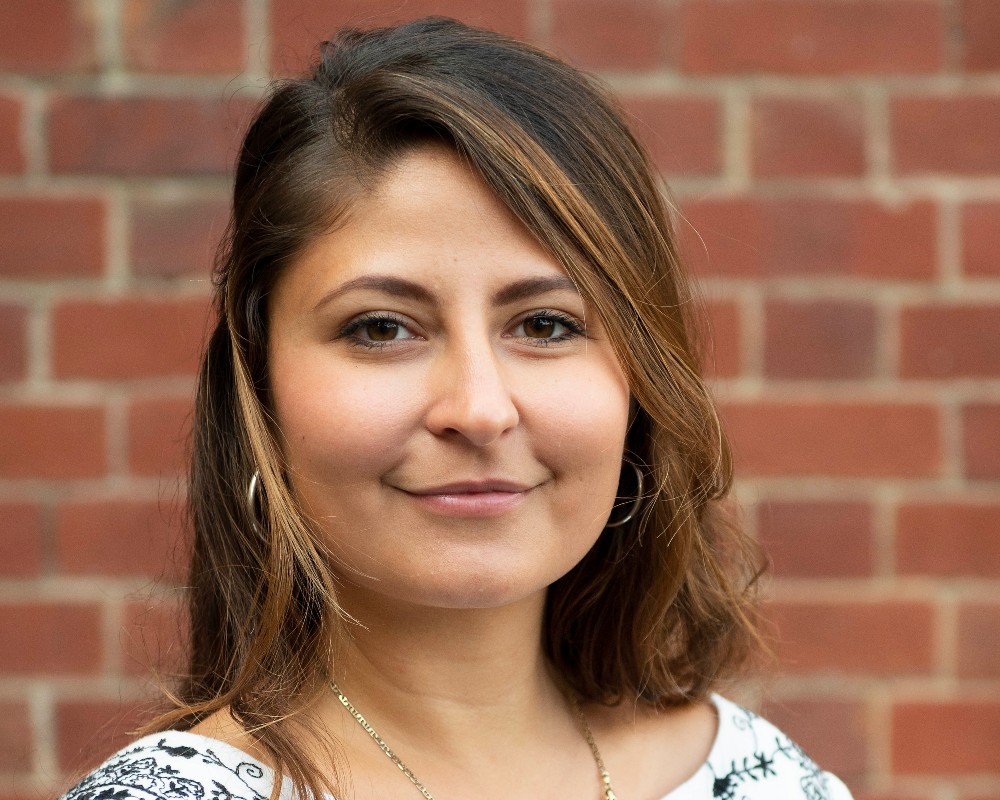
As an activist, what are you trying to do to make a difference?
I am very lucky to have found Plan International Australia, which became a safe and empowering space where I met people who were as passionate as I am about education and gender equality. On a personal level what I think I’m best at is sharing these opportunities with other girls, opening a path for them to take the mic and use their voice. Show them that what they have got to say matters and that people are listening. Empowering other girls and cheering for their success.
How has education made an impact on your own life?
For me, education has always been a synonym of opportunity, dreams, and plans. As I grew older I realised not everyone had the same encouragement I had received from my own mum to be educated. It shocked me that many girls were deprived of the freedom of searching for who they want to be. Education is a life-changer in anyone’s life and it must be accessible to everyone.
Why do you believe that educating girls can change their own lives, but can also transform the world?
Allowing girls to access quality education means investing in their future – and in everyone’s future for that matter. It has been proven that educating girls as well as boys has huge economic, science, and social benefits. Educating girls lifts more people out of poverty and increases a country’s GDP, for instance.
What are some of the biggest hurdles girls face in getting an education?
Sadly, the greatest barriers begin at home, when girls do not have the same priority as other family members, because of the false belief of girls not having the same potential or value as the rest. So for many girls, life is constantly about proving that you are worthy enough of a chance.

